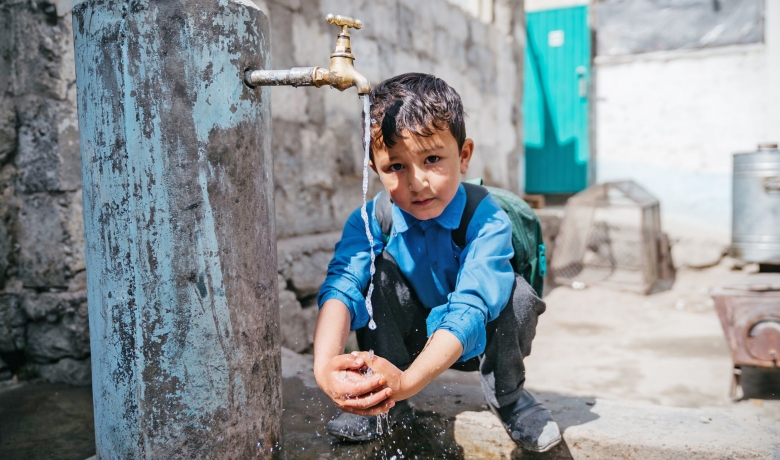Over half the population of Pakistan lack access to safe and clean water and have no choice but to consume water from whatever source exists in their villages, regardless of quality. The Aga Khan Agency for Habitat (AKAH) -- with the help of communities -- identifies water sources in the village, tests the water quality using its technical expertise, develops water infrastructure, constructs water reservoirs, and provides each family with a water tap in their home. More than 500,000 people across Pakistan now have access to safe drinking water in their homes through AKAH’s efforts.
This photo gallery depicts the existing infrastructure, which is largely based on a canal system that provides water from streams for cooking, household needs and irrigation, and AKAH’s work to improve the quality of life for villagers accustomed to unclean water sources.
AKAH’s flagship programme, the Water and Sanitation Extension Programme (WASEP), was initiated in 1997 with the aims of providing integrated water supply infrastructure services to local communities while helping prevent water-related diseases though improved hygiene and sanitation practices. The development of community capacity in the design and maintenance of these services is a key element of WASEP’s integrated approach. Communities also take the responsibility of the operation and maintenance of the scheme, and contribute to a fund for salaries of community scheme-based operators, health monitors, and spare parts.
AKAH’s WASEP model has won a number of prizes, including the DIABP Best Practices Transfers award, which was given for "tangible impact resulting from the transfer of one or more of the following: ideas, skills, processes, knowledge or expertise, and technology; changes in policies or practices and sustainability of the transfer as part of a continuous process of learning and change".

















